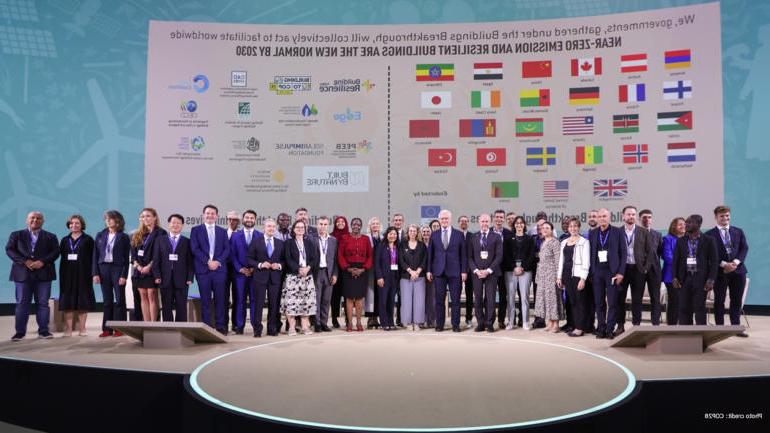- The 昆明-蒙特利尔全球生物多样性框架 charts a new course for our society’s relationship with nature, with business action critical to the mission of halting and reversing nature loss by 2030.
- A sectoral approach is needed to address the impacts and dependencies that different parts of the economy have on nature and biodiversity.
- 帮助加速向对自然有利的未来过渡, new guidance sets out the priority actions to be taken by all businesses across 12 sectors.
Last December, the world took an important step towards resetting its relationship with nature. Amidst unparalleled biodiversity loss and a worsening climate emergency, the 昆明-蒙特利尔全球生物多样性框架 (GBF) agreed last year by 196 governments set out the range and scale of actions needed for the world to halt and reverse nature loss by 2030 – a goal commonly referred to as ‘nature positive’.
Notably, the framework calls out the role of business in contributing towards a nature-positive world in several of its goals and targets. This comes as more and more business leaders seek to understand the full extent of the risks that the nature crisis presents to their companies.
These range from disruption of their operations and supply chains resulting from the loss of nature and ecosystem services to transitional risks resulting from shifting customer expectations, and investor pressure and new regulation for nature-related reporting and disclosure.
All in all, it is increasingly clear that companies willing to lead the transformation and act now on nature will be better placed not only to mitigate their nature-related risks, 满足不断变化的社会期望,为即将到来的监管做好准备, but also to tap into the commercial opportunities 这些都来自于保护和恢复自然.
加快企业对自然的行动
商业对自然的影响程度是显而易见的, 拥有四大价值链的运营——食品, energy, infrastructure, and fashion – currently driving 超过90%的人为因素对生物多样性造成压力.
While some businesses have started to explore and reduce their impacts and dependencies on biodiversity, 企业对自然的行动远远落后于气候行动. Research shows that 83% of Fortune Global 500 companies have targets to address climate change, 相比之下,生物多样性损失只有5%.
没有保护,就不可能有效应对气候变化, 恢复和负责任地管理我们的自然世界.
根据政府间气候变化专门委员会(IPCC), over the past 10 years, our planet's oceans, flora, fauna and soils have absorbed more than 50% 人类造成的碳排放. 研究还表明,基于自然的解决方案可以提供 减排高达37% 需要在2030年前将全球气温上升控制在2摄氏度以内.
大自然是我们对抗全球气候灾难的最佳盟友. Now is the time for business to take action to help build a future that is nature positive as well as net zero.
为什么公司需要针对特定行业的方法
All parts of our economy are dependent on nature and its ecosystem services to continue functioning. 尽管每个行业在整个价值链中都依赖于自然, they simultaneously continue to contribute to the very drivers of nature's decline.
- 化工行业占 占全球淡水使用量的5-10%然而,它依靠淡水储备来继续运作.
- 个人护理和家庭用品部门 依赖商品和天然成分, yet some sourcing practices for harvesting plants have a direct impact on biodiversity.
- 全球粮食生产依赖于生物多样性和健康的生态系统, 然而,农业是一个公认的威胁 86%的物种面临灭绝的危险.
Put simply, a nature-positive future is unattainable without reducing our impacts on nature and reversing nature loss. 这要求我们迅速改变社会经济制度.
以必要的规模和速度采取积极的自然行动, it is crucial for businesses to understand their specific interactions with nature in the context of the sector in which they operate.
This will allow them to take the most effective steps to minimize their impacts and dependencies on nature and to identify the opportunities to collaborate on, or advocate for, accelerated change.
改革12个全球部门的优先行动
帮助为这些部门办法提供信息, Business for Nature, the 正规博彩十大网站 and the World Economic Forum have, 在许多伙伴组织的支持下产生了新的 guidance on the sector-specific actions companies can take for 12 global sectors to transform their operations and value chains:
这12个部门包括农业食品, built environment, chemicals, 建筑材料。水泥和混凝土, energy, fashion and apparel, financial services, forest products, 家庭和个人护理产品, travel and tourism, waste management, 水设施和服务.
For each sector, high-level actions have been identified that all businesses can take, linking to global tools such as the 科学目标网络(SBTN) 指引及风险管理及披露架构由 与自然有关的财务披露专责小组.
Examples include:
- Energy businesses can adopt circular designs and incorporate recycled materials in turbines.
- Household and personal care product companies can increase investment into nature-conscious products and business models, such as refillable products, waterless formulations, and reusable or durable products to minimize water consumption and pollution of water systems.
- Cement and concrete businesses can replace freshwater with non-freshwater sources such as harvested rainwater or treated municipal water, 建立水循环系统, and create artificial wetlands to reduce water withdrawal and improve water quality.
- Agri-food companies can avoid the degradation – and accelerate the regeneration – of land and ecosystems by committing to and implementing deforestation and conversion-free production and/or sourcing and supporting farmers to embed regenerative agricultural practices.
The recommended transformative actions follow the commonly used mitigation hierarchy to first avoid and reduce pressures on nature, 然后恢复和再生,恢复自然状态, and finally to transform underlying systems to address the drivers of nature loss.
以自然为先,人人受益
It is abundantly clear that putting nature first is necessary to promote the health of our planet and ensure a resilient and sustainable future for us all.
大自然是我们实现气候目标的最佳盟友, 确保繁荣的经济和社会, 这是各种规模的企业的责任, geographies, and sectors to play their part.
这需要投资和创新,但是 针对自然的部门具体行动 为这个转变提供一个路线图.









